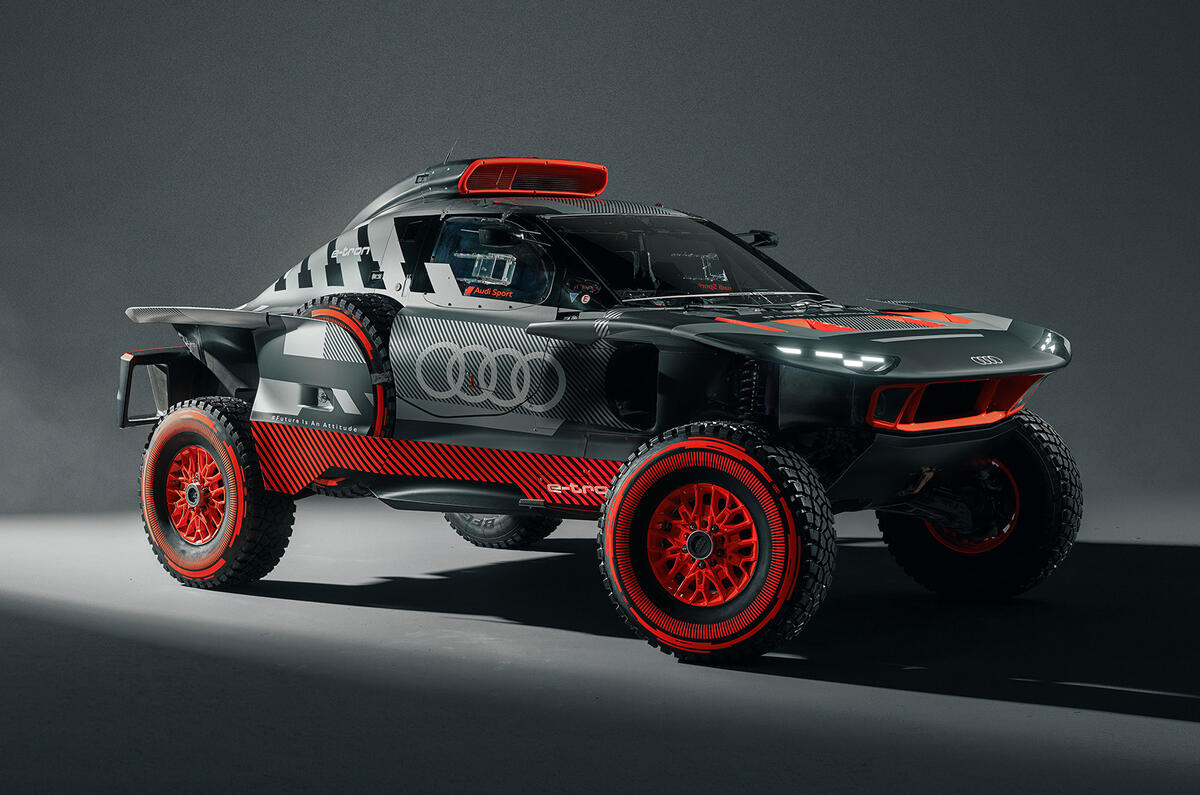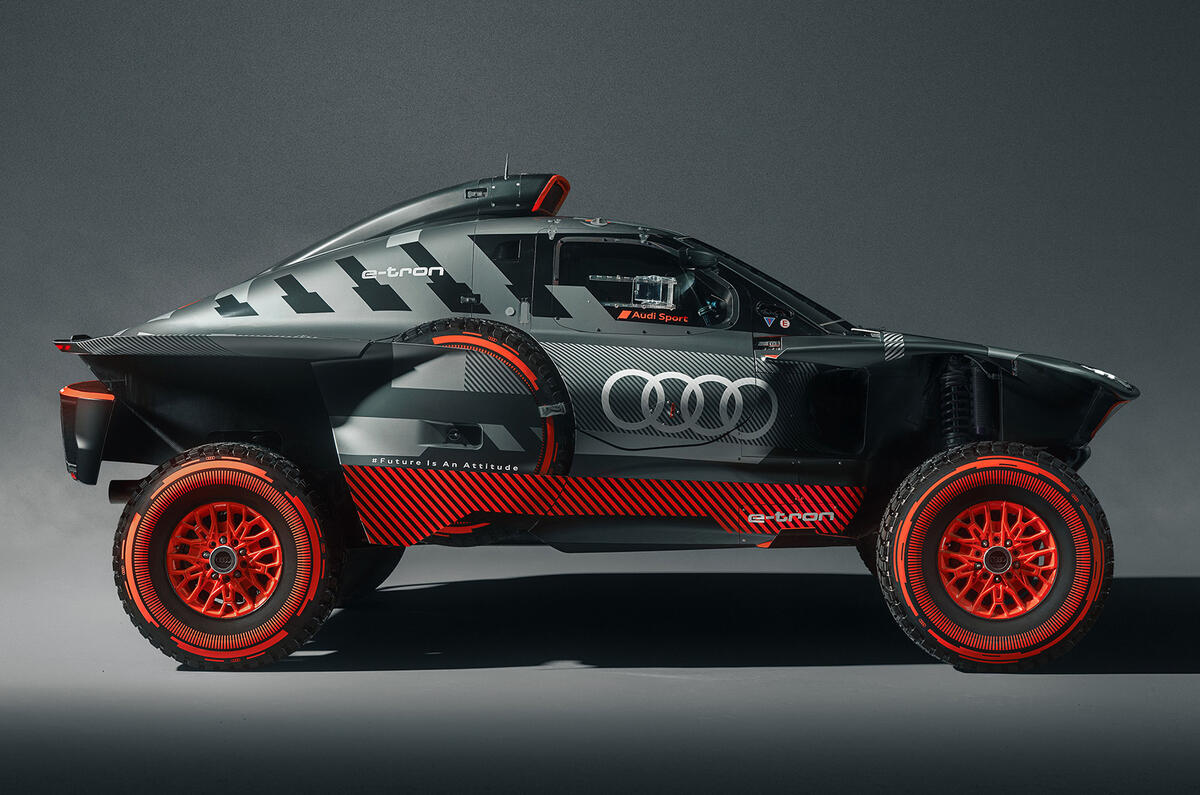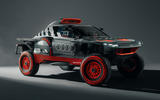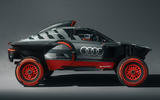Audi has massively revamped its Dakar Rally challenger ahead of next year’s event, with the new RS Q E-tron E2 sporting entirely redesigned bodywork.
The German firm entered three of the innovative 4x4s in this year’s Dakar endurance rally raid in Saudi Arabia, driven by Carlos Sainz, Stéphane Peterhansel and Mattias Ekström. While Audi claimed four stage wins, a series of incidents hampered their overall victory push, with Ekström finishing ninth overall.
Audi claims it has “significantly improved” the RS Q E-tron, with the modifications significant enough for it to use the E2 designation – which was used to denote the second-generation of its 1980s Audi Quattro Group B rally cars.
The focus of the changes have focused on the bodywork of the rally-raid machine, rather than its unusual quad-motor range-extending electric powertrain. Every single body part has been modified from the original RS Q E-tron, with a key focus on improving the aerodynamics including a body designed to resemble a boat’s hull.
That means it is widest at the cockpit, before tapering down towards both the front and rear of the vehicle. Audi has also ditched the ‘elephant foot’ fenders between the front wheels and door, which saves weight and aids the airflow.
The new car is 4670mm long, 2300mm high and 1950mm wide, making it around 170mm longer than the previous version.
Audi claims that overall aerodynamic drag has been reduced by around 15%. While the top speed of the car remains limited to 105mph, Audi says that allows substantially reduces the energy requirements for the car, making it more efficient.
While the minimum weight for the T1U alternatively fuelled vehicle rally-raid class has been increased from 2000kg to 2100kg, last year’s Audi was significantly over that weight, so the firm has also sought to reduce weight by “several dozen kilograms”.
Audi engineers have also increased the size of the cockpit to meet the new T1U regulations and made several changes to the layout. It has restructured all the displays and controls, including a new rotary switch to select from four ‘system areas’ that give access to the various functions required at different times.
The RS Q e-tron E2 retains the powertrain from the original car, with three 33kg electric motors – one generator, one powering each axle – sending 386bhp to all four wheels. The motors are supplemented by a turbocharged four-cylinder 2.0-litre petrol engine, which is used purely as an ‘energy converter’ power source to charge the battery, helping to increase the range on the long Dakar stages.
Audi has made some tweaks to the system based on its experience from last season. At the Dakar Rally, it found that it experienced short-term power surpluses when the car was jumping or running on uneven terrain, leading to rulemakers to improve a 2kJ 'excess energy threshold'.
In response, Audi has remapped the software to fine-tune the power controllers with individual limits for each motor that are constantly recalibrated. The control of the auxiliary consumers – the servo pump, air conditioning and fans – have also been reworked to reduce their energy consumption.











Join the debate
Add your comment
Car companies like Audi have has decades to develope there Cars for us the buyers, Cars should by now be the best they can offer , they should be well built, efficient and relatively economical to own, bu, no that's not really happened, Audi are alone in spending millions on a Car racing series, I don't think most of there tech filters down to the Cars we drive daily.
Substitute had for have, and aren't for are, a slip of the keyboard, oops!